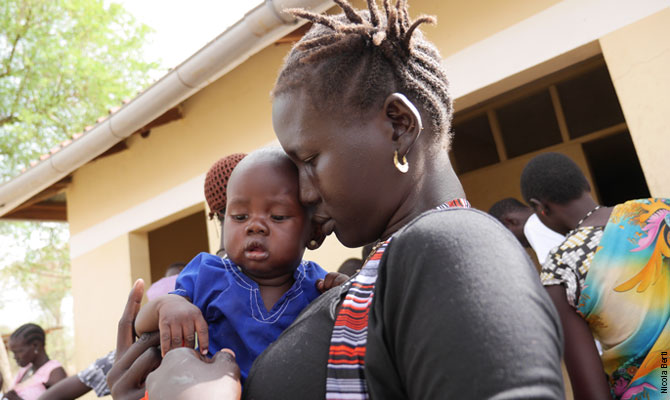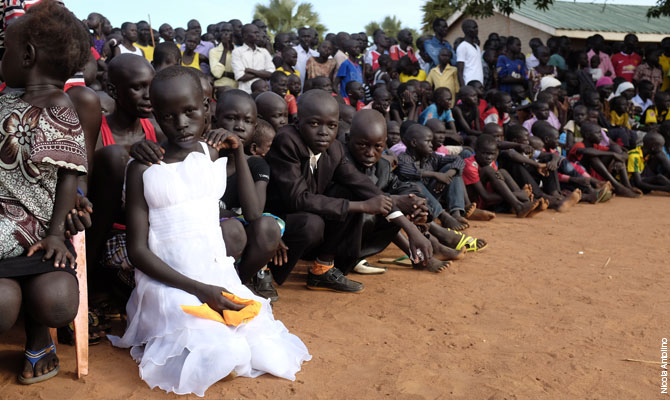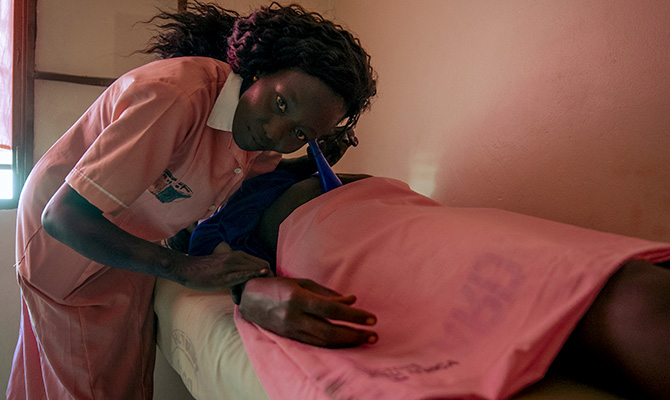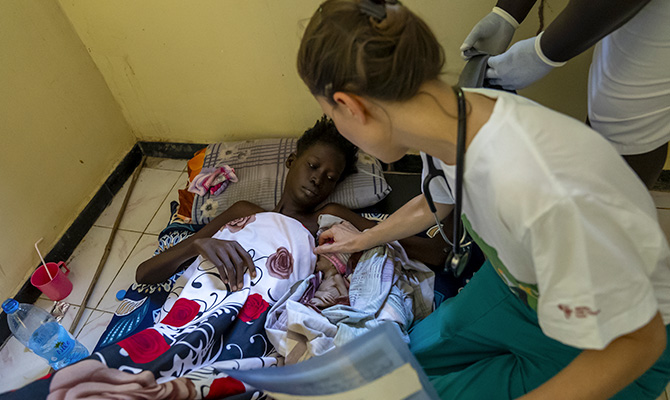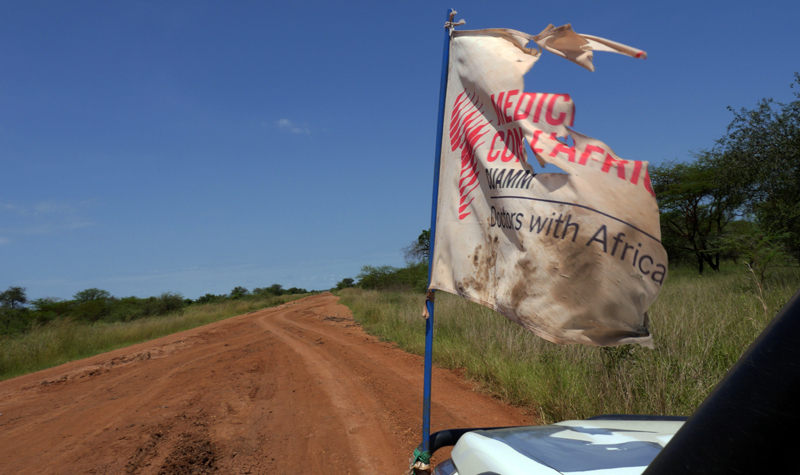We are in the midst of summer, ideally a season for relaxation and calm. And we all deserve some rest… yet events such as those in France and Germany, to mention only the most recently hit places, remind us that our awareness of the time we are living through cannot go on holiday. These times require clarity, wisdom and courage, for us and for our future. This is also true about what has happened in South Sudan, which affects us directly. We have almost 700 local South Sudanese workers in the field, and more than 50 doctors, as well as international support and administrative staff.
The clashes that have once again thrown the country into uncertainty began twenty days ago in the capital, Juba. It looks as if the most intense phase, which involved shootings from helicopters and tanks on the streets, has passed, but the situation is still tenuous. The consequences of this severe crisis are emerging: thousands of people are fleeing to other areas of the country and even beyond national boundaries, toward the border with Uganda and to already overcrowded refugee camps. Hygienic and sanitary conditions are critical, and food provisions are becoming scarce.
The vice president Riek Machar left the capital and has been in an unknown location outside the city for the last few weeks. Another representative of the opposition, the mining minister Taban Deng Gai, was appointed the new vice president for the government led by Salva Kiir. The news of this appointment was not well received by Machar, exposing further splits in the opposition, divided into two groups: one in favor of governing with Kiir and the other, led by Machar, determined not to turn back. These latest developments seem to not be a good sign for a peaceful resolution of the conflict.
Our country representative in South Sudan, Valerio Granello, says that the movements of troops in the capital have increased in the last few days, seemingly to protect the new vice president Gai, and his men. But Machar maintains control of the armed rebels that support him.
Nonetheless, the choice by many NGOs to return to Juba is a positive sign of trust and commitment to the fate of the world’s youngest nation.
The area around the hospital of Lui, in Mundri East County in the state of Western Equatoria has felt the effects of the violence in Juba like the rest of the country, though it is far from the capital. Giancarlo Ometto, doctor and hospital director, tells us that there are major movements of men, women, and families afraid of the safety risks.
“People are trying to find refuge in safer places, they’re fleeing and scattering, with no stable points of orientation. They eat little or nothing. It’s raining a lot, and the children are falling ill more easily with acute diarrhea, malaria, skin parasites, and pneumonia. Yesterday we admitted two one-month-olds with really severe pneumonia. We hope for the best, but when they are malnourished, they are less able to fight disease, and antibiotics are often less effective. To know if the baby is getting better, I ask the mother if she is nursing him again. She says yes, but then I take a look at her mat and don’t see any food at all. What milk can she give her child if she herself has nothing to eat?”
After the clashes began in Juba, groups of armed rebels close to the opposition became active again in the area of Lui. These groups, called “arrow boys,” made guerrilla attacks against government forces in 2015.
Giancarlo tells us, “A few days after the clashes in the capital city –– on Monday morning we heard shots, like thunder, outside the hospital. It wasn’t a storm. I got a strange, really awful feeling. Then I saw some mothers hurrying along the area behind the hospital. I went into the ward and found it almost empty, a surreal image. That morning I didn’t make rounds; there were no patients, even though we usually have between 30 and 50 patients. Some of the children who had fled were very ill, but their mothers’ fear was so great that they ran anyway. That day we set up three large tents supplied by the World Health Organization to offer people some shelter. The next day, people did come to the hospital because they realized it was probably safer than other places. Right now there are still people sleeping here in our compound.”
The general turmoil makes travel between places complicated, creating difficulties for people on the move and for supplies to markets and hospitals.
“The streets, already in poor shape, have become unsafe and transportation more expensive, with the result that some families don’t take children or pregnant women to clinics or hospitals. Vaccines are skipped, but, beyond that, the spike in transportation prices has caused an increase in food prices, which are for the most part imported from abroad since it is difficult to plant and harvest food during war. I hope to hear the sound of trucks on the streets again soon. I’ve never wanted to hear that sound so much! When trucks start going by again, this will mean that the social and economic situation of the country is improving, but even when things start back up, as is always the case in this type of situation, it will be starting from a worse position.”
Every bit of help is important. Find out how to contribute.
The situation is somewhat better in Lakes State (where the hospitals of Yirol, Cueibet and the large Maper health center are located) and in the city of Rumbek.
Our volunteers are still active, even though the social climate is tense (salaries for government workers have not been paid for six months), but there are no armed clashes. Despite the worries, volunteers remain calm and are still full of determination and drive.
Sara Pagin, a thirty-nine-year-old woman from Venice, left for South Sudan just the other week to work in an administrative capacity at the hospital of Yirol. She did not let the tensions frighten her.
Sara said, “I am aware of the complicated situation in South Sudan, and also of the reliability of CUAMM, which is sending me there. I was born in a privileged world, and I feel a strong desire for justice and social equity. Coming here seems to me the best way to do my part and to help give the same basic opportunities to all.”
The biggest worry we have, especially for the people, has to do with medicine and food. The number of malnourished children and mothers is increasing dramatically. The price of rice, flour and beans has spiked, and it is becoming hard to find these staple foods.
We remain hopeful that the country may soon find a path to peace. A few days ago Pope Francis invited Cardinal Turkson, president of the Pontifical Council for Justice and Peace, to encourage dialogue among the opposing parties. We must make every effort we can in this direction.
Discover more about our history in South Sudan

